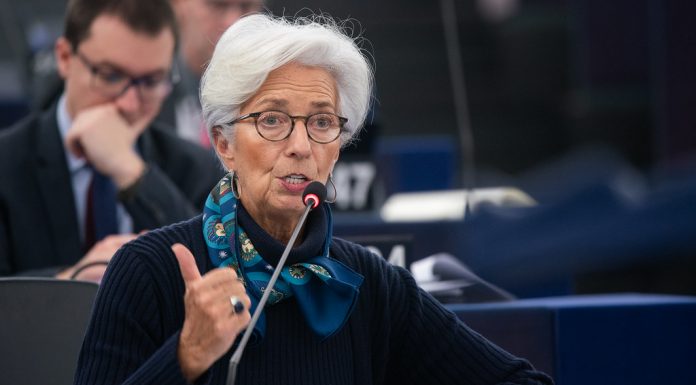On Wednesday 19 November, EU governments agreed to extend the EU’s deforestation directive (EUDR) once again, this time until the end of December 2026, instead of allowing it to enter into force at the end of December of this year. They thereby override the European Commission, which had proposed to only delay implementation for micro and small businesses, whereby large and medium businesses would merely a six-month grace period. The directive bans the sale of products such as cocoa, livestock, coffee, palm oil, wood, and rubber if they are linked to deforestation on the EU market.
The official reason for the delay provided by the European Commission was that the IT systems managing EUDR compliance, but this has been met by general scepticism. Apart from dismaying large parts of European industry, in particular smaller businesses, like German forest owners, EUDR has truly upset trade relations between the EU and its most important trading partners, first all of the United States, but also Brazil and South East Asia.
After US President Trump managed to secure a de facto exemption for American products, countries like Indonesia and Malaysia, which are great exporters of palm oil, asked for the same. Malaysia considers it particularly unfair that its imports are classified by the EU as ‘standard risk’, as opposed to the American classification of ‘low risk’, given that Malaysian deforestation has improved significantly, with NGOs acknowledging a reduction of 13 per cent last year. Malaysia lost just 0.56% of its remaining primary forest in 2024, according to Global Forest Watch. That is less than Sweden’s 0.87% loss.
EU countries back German push to delay, reopen deforestation rules | Euractivhttps://t.co/E6JKe54RD8
— Gunther Schnabl (@GuntherSchnabl) November 20, 2025
In an attempt to ease tensions, the EU recently agreed to recognize the Malaysian Sustainable Palm Oil (MSPO) certification as a credible standard for demonstrating compliance with the deforestation law. This began as a voluntary scheme in Malaysia, the world’s second-largest palm oil exporter, and became mandatory in January 2020, with independent third-party audits ensuring compliance. Still, EUDR imposes lots of bureaucratic new requirement on companies hoping to export to the EU, with the United States enjoying a different, preferential treatment, adding to the concerns.
Euractiv notes that the text endorsed by EU governments was based on the German document as well as on a second proposal from Denmark, which is chairing the Council of EU Member States. Still, a deal will need to be found with the European Parliament, however. A plenary vote is scheduled for 26 November. It is all very last minute, and despite some corporates pushing for a delay, many major corporates already prepared for the new bureaucratic requirements, causing even more anger.
The most significant change agreed among EU governments is the introduction of a simplification review clause requiring the Commission to “carry out a simplification review” of the regulation and present a report by 30 April 2026, which could, “where appropriate,” be accompanied by a legislative proposal. EU governments also want downstream operators to no longer be required to submit their own due diligence statement proving that no deforestation occurred in producing the goods.
Joy and dismay
German Agriculture Minister Alois Rainer welcomed the deal, stating: “Justified forest protection should not stand in the way of red tape reduction. Our companies need less bureaucracy, not new hurdles.”
🌳 Einigung bei der EU-Entwaldungsverordnung #EUDR auf Basis unseres deutschen Vorschlags. Dazu Bundesminister Rainer: „Berechtigter #Waldschutz darf #Bürokratieabbau nicht ausbremsen. Unsere Unternehmen brauchen weniger Bürokratie, nicht neue Hürden.“
👉 https://t.co/OAJBIcfME6 pic.twitter.com/Gna6lIxGF8
— BMLEH Landwirtschaft · Ernährung · Heimat (@BMLEH_Bund) November 20, 2025
On the other hand, the European Commission and its socialist executive vice president Teresa Ribera, reacted with dismay. Ribera condemned member states’ move to delay EU deforestation rules by a year and reopen the law, saying:
“I cannot hide my deep disappointment and frustration. This is a bad decision and I feel sad. Tracking deforestation is key to prevent it and to count on a reliable instrument to facilitate sound carbon markets and trustful forest funds.”
NGOs were equally unhappy. The World Wildlife Fund (WWF) stated: “Member States adopted a deeply flawed position to gut the EU Deforestation Regulation”, thereby adding that “claims by Member States that ‘tackling deforestation remains a priority’ are a blatant distortion: they have just agreed to water down and delay the EUDR, disregarding both the regulation’s environmental purpose and the public money already sunk into it.”
Socialists and greens better get used to it. Earlier this month, the European People’s Party, the largest faction in the European Parliament, to which also European Commission President Ursula von der Leyen belongs, abandoned its traditional centrist allies and secured support from more right-leaning groups to water down green rules, like the CSDDD, another new directive passed during von der Leyen’s first term that imposes lots of bureaucratic “sustainability reporting” requirements on companies. CSDDD rapporteur Jörgen Warborn, a Swedish centre-right MEP, shrugged off criticism from the left about this, stating: “You have to find majorities in parliament. That’s what you do.” Italian ECR MEP Carlo Fidanza predicts that the same pattern would “inevitably apply to the next steps in the simplification process.”
Another era?
Another contentious new measure is the European protectionist climate tariff “Carbon Border Adjustment Mechanism” (CBAM), which imposes levies on trading partners that do not follow the EU’s suicidal climate policy, as well as a lot of bureaucracy, even for European companies. The European Commission has already admitted that there are major downsides of CBAM. Right before the Dutch election, EU Commissioner Wopke Hoekstra pointed out that he has made sure to “exempt 95 procent of companies” from CBAM, calling this “a success of less regulatory pressure, but one can hardly boast that the original plan was perfect.”
Also on CBAM, Trump managed to secure concessions, last Summer, which led to a demand by South Africa to also be exempted. After all, African economies are at risk of being hit hard by CBAM. As with the deforestation directive, attempts to impose rules on trading partners are causing discontent, double standards and a lack of progress in opening up trade between the EU and the rest of the world. India complained last month that it is ‘almost impossible’ to comply with all EU regulations. Despite the EU and India aiming for a new trade deal before the end of 2025, the EU however continues to refuse any concessions on CBAM. The pressure may however continue from all sides.
Furthermore, the European Commission has also unveiled a significant rewrite of its ESG rulebook for the investment industry, whereby it proposes that the Sustainable Finance Disclosure Regulation (SFDR) will no longer require asset managers to report the negative environmental or social impacts of their entire portfolio.
Furthermore, regulatory cuts are also coming for digital regulations, with changes to the GDPR, the AI Act and ePrivacy rules coming up, including reviewing the dreadful EU rules on “cookies” that burden smooth internet experience for Europeans.
Everyone knew ESG regulation was gibberish and impossible to implement from day one.
But it built a multi-trillion-dollar industry — an industry pretending to do good.
I blew the cover on this in 2021, and I stand by it: ESG is a heavy bureaucratic tax on society that just…
— Desiree Fixler (@desireefixler) November 20, 2025
Still, however, these are only modest changes to EU regulations that are often not even fully in force. At the same time, the EU is still agreeing new green policies, for example another new EU climate target, this time for 2040. This was agreed this very month.
Also ETS2, the extremely expensive new CO₂ tax for people that drive petrol or diesel cars or that heat their homes with gas, is still scheduled to be introduced, even if it will be postponed by one year, to 2028.
The absolute top priority for the EU to fundamentally change course is to abolish the EU’s climate taxation scheme ETS. The cost of this “emissions trading scheme” (ETS), is about twice the total cost of the US natural gas price. While the European natural gas price is about four to five times the US price, companies in Europe need to compete with Asia with a natural gas price that is 50 percent higher. It doesn’t take a genius that this is at the very heart of the lack of competitiveness of European companies that are energy-intensive. It is also virtually the only measure the EU could take to make a difference for them at the very short term, in order to counter the ongoing trend of deindustrialisation, which is particularly hitting Germany, the heart of the European economy hard.
Yet, not a single leading politician in Europe support this.
Why is EU industry bleeding? The cost of the EU's de facto climate tax (ETS, a cap and trade scheme) is about twice as big as the total US natural gas price (red vs blue bar), which is only about 1/5 of the EU's natural gas price: https://t.co/t66Vmwj6xA
— Pieter Cleppe (@pietercleppe) September 22, 2025













